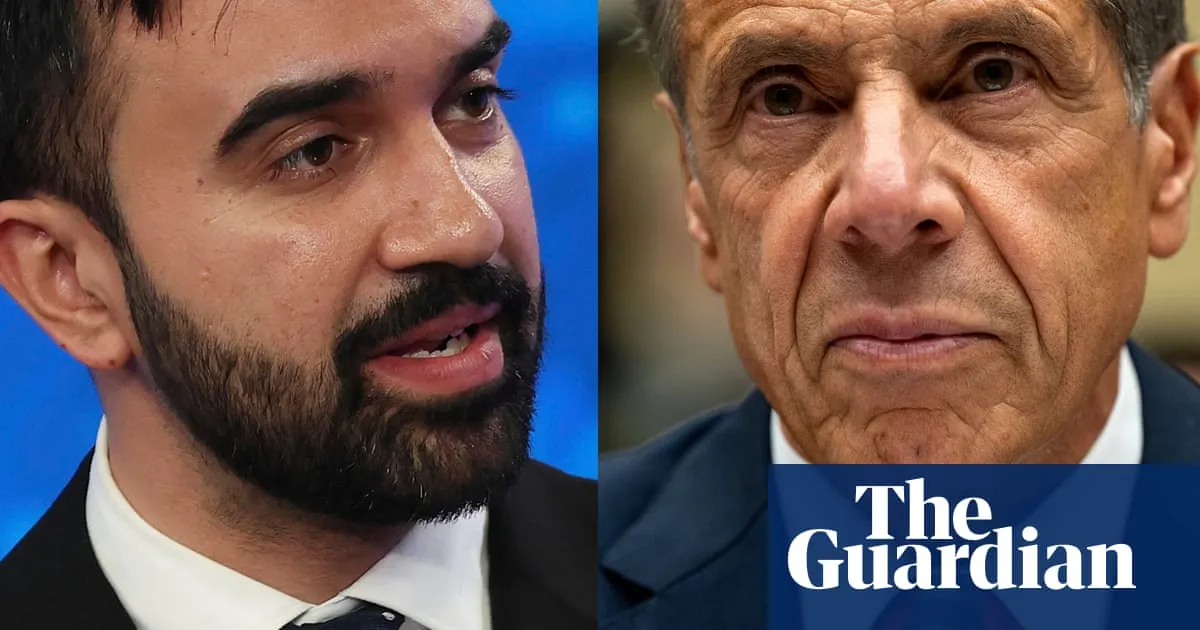
Zohran Mamdani, a 33-year-old democratic socialist, is on the verge of making history as New York City’s first Muslim mayor if he secures victory in the Democratic primary. As of Tuesday night, with 91% of the votes counted, Mamdani, a state representative, led with 43.5% of the vote, while former New York Governor Andrew Cuomo trailed behind at 36.4% and conceded the race. Cuomo, who had been seen as a strong contender until recent weeks, praised Mamdani at a campaign rally, stating, “Tonight is his night. He deserved it. He won.”
In the primary race, Brad Lander, the progressive New York comptroller, came in third with 11.4% of the vote. New York City employs a ranked-choice voting system, which means that since no candidate is likely to reach the required 50% threshold, the Board of Elections will now begin counting the second-choice votes. Mamdani, who had cross-endorsed with Lander just last week, is expected to gain an advantage over Cuomo as the count progresses.
Mamdani's unexpected rise in the political landscape serves as a significant challenge to the Democratic establishment and offers inspiration to other progressive candidates eyeing future elections across the nation. Cuomo, despite his backing from wealthy donors and endorsements from centrist figures like Bill Clinton, could not match the grassroots momentum Mamdani garnered, particularly among young voters. During his concession speech, Cuomo acknowledged Mamdani's ability to connect with the youth, saying, “He touched young people and inspired them and moved them and got them to come out and vote.”
Looking ahead, Cuomo hinted at a potential independent run in the upcoming November mayoral election, stating, “I want to analyze and talk to some colleagues.” However, given New York’s predominantly Democratic electorate and the unpopularity of the incumbent, Eric Adams, Mamdani is positioned as the frontrunner to become New York’s 11th mayor.
The race for mayor in New York City has attracted considerable attention nationwide. It highlights the contrasting visions within the Democratic Party, showcasing two vastly different candidates: the centrist Cuomo and the progressive Mamdani. As the primary unfolded, Mamdani closed the polling gap due to a surge of enthusiasm from young New Yorkers eager for change.
Mamdani's campaign focused on a progressive platform, advocating for policies such as freezing rent and providing free bus services citywide. His rapidly growing social media presence, bolstered by endorsements from prominent figures like Alexandria Ocasio-Cortez and Bernie Sanders, significantly contributed to his campaign's success. In stark contrast, Cuomo opted for a more subdued campaign style, favoring tightly controlled appearances over large rallies.
As the primary race intensified, Cuomo’s campaign relied heavily on attacking Mamdani, with millions spent on mailers and television advertisements. Reports indicate that Cuomo benefited from over $25 million in outside spending during the primary—a record for the city. Early voting commenced on June 14, and by the end of the early voting period, more than 380,000 voters had participated, double the turnout from the 2021 primary.
Despite a heatwave that struck New York, with temperatures soaring to 100°F (38°C), voter turnout remained robust, with estimates suggesting over 1 million ballots cast. While winning the primary does not guarantee an eventual mayorship, the Democratic candidate is typically favored in a city where registered Democrats vastly outnumber Republicans.
The current incumbent, Eric Adams, who won the 2021 election as a Democrat but is running this year as an independent candidate, faces considerable unpopularity. His administration has been marred by controversy, including allegations of bribery and accepting foreign campaign contributions, although charges were dropped in April following intervention from the Trump administration.